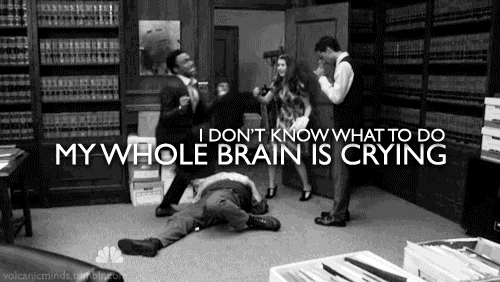Franz Kafka’s novel “Metamorphosis” is not the first of its kind. The story of a man transforming into an animal/ insect has been around for centuries. (I.e. Harry Potter, Twilight, Shrek)
What is remarkable about this novel is the idea that there is no hysteria to the alteration from his soft fragile skin to having an exoskeleton. He doesn’t seem to worry much at all about being a cockroach, only that he is missing work and will not be able to support the family. In some ways it is a smart coping mechanism. If he weren’t a travel agent, as he was, I would say he should have gone into therapy. He knew to focus on work rather than his transformation in order not to go mad. Although, maybe not therapy because he was doing this subconsciously and thought if he went back to sleep all would be okay.
Another astounding idea in this novel would be to discuss the size of Gregor after the transformation. When he awoke the first morning I believed him to be this life size cockroach that took up the entire bed. In the first chapter Kafka wrote many details to Gregor’s waking up that led me to believe his size was life size. When Gregor fell off the bed (page 94) it said that there was “a loud impact, though not a crash as such.” That could be justified as in Gregor’s hearing, it seemed loud, but wasn’t actually as loud as a human would have been falling off a bed, but it isn’t justified. A paragraph later on the same page the chief clerk takes notice to it and says to Gregor’s father that “something’s going down in there.” This proved that it wasn’t only Gregor that felt it was a loud noise but his boss heard it too. Later on in the novel though I believed Gregor to be a regular sized cockroach. When Grete decided to clear the furniture out of his room and he “saw the picture of the fur-clad woman all the more prominent now, because the wall on which it hung had been now cleared, [he] crawled hurriedly up to it and pressed himself against the glass, which stuck to him and imparted a pleasant coolness to his hot belly.” [122] How could a human sized cockroach crawl onto a picture on a wall and fit on the glass of it? It could not; therefore Gregor must be a regular size and not life-size. How could this be though if there is proof from the beginning of his life-size form?
This led me to the conclusion that Gregor’s size deteriorated with time while his humanity deteriorated. Although Kafka did not write this novel through emotions or let us see deep into his protagonist’s transformation I found I was able to see Gregor’s humanity dissipate throughout the novel by little actions. Like when he found out the delectable smell of the “dish full of sweetened milk, with little slices of white bread floating in it…he disliked the taste of milk, which otherwise was a favorite drink.” [106-107]
What was the hardest part of the book for me to read were the last few pages. The idea that Gregor’s family didn’t mourn the death of him and were fine with it hurt me tremendously. I understand he was a cockroach towards the end of his life and was only a burden to them but still they should have put themselves in his situation. Not that they could relate, but they should have tried. He was all alone, he didn’t enjoy what he used to enjoy, No one wanted to communicate with him. Mourn who he was at least and not what he became. This just made me think of the song from Les Miserable “on my own.”




 to work, because he was afraid of losing his job and thus his means of supporting his family. I actually thought he was kind of adorable, which is kind of weird seeing as he was a giant cockroach. It was sort of surreal how I wasn’t really wigged out by the thought of a giant cockroach, even though I despise all kinds of insects.
to work, because he was afraid of losing his job and thus his means of supporting his family. I actually thought he was kind of adorable, which is kind of weird seeing as he was a giant cockroach. It was sort of surreal how I wasn’t really wigged out by the thought of a giant cockroach, even though I despise all kinds of insects. I felt at one point that maybe the story could be taken as allegory for the way people might sometimes feel when a family member falls seriously ill. I sometimes hear stories of people who get sick and then feel like a burden on their family that has to take care of them; I also hear stories about people who resent their ailing family member for taking up so much time, energy and resources. Additionally, their horror at Gregor’s state and their unwillingness to let him out or go near him seems to mirror the stigma attached to sick people, the fear that they’ll infect everyone around them, even if their disease isn’t contagious.
I felt at one point that maybe the story could be taken as allegory for the way people might sometimes feel when a family member falls seriously ill. I sometimes hear stories of people who get sick and then feel like a burden on their family that has to take care of them; I also hear stories about people who resent their ailing family member for taking up so much time, energy and resources. Additionally, their horror at Gregor’s state and their unwillingness to let him out or go near him seems to mirror the stigma attached to sick people, the fear that they’ll infect everyone around them, even if their disease isn’t contagious.












 Embedded left is what my reaction would have been, as well as what I thought was the natural reaction to have. Therefore, when the family responded in a rather reserved albeit still repulsed manner, it made me think under what circumstances that would be the natural response. It would be easy to claim that Kafka’s Metamorphosis is staged in an alien world accustomed to strange transformations; the chambermaid certainly seems to be no stranger to Gregor’s situation. And, perhaps, by drawing from the similarities between Kafka’s life and Gregor’s fictional narrative, readers can come to the conclusion that Kafka has projected his feelings into this symbolic representation and the way a family would react.
Embedded left is what my reaction would have been, as well as what I thought was the natural reaction to have. Therefore, when the family responded in a rather reserved albeit still repulsed manner, it made me think under what circumstances that would be the natural response. It would be easy to claim that Kafka’s Metamorphosis is staged in an alien world accustomed to strange transformations; the chambermaid certainly seems to be no stranger to Gregor’s situation. And, perhaps, by drawing from the similarities between Kafka’s life and Gregor’s fictional narrative, readers can come to the conclusion that Kafka has projected his feelings into this symbolic representation and the way a family would react.









